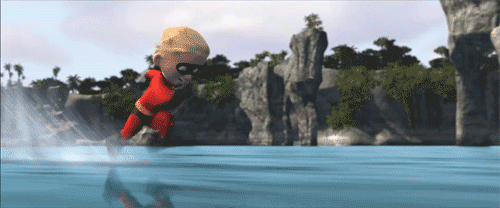
I just took a look at that scene, and I would estimate that he's running at about 100 to 150 mph.
Posted on 10/02/2013 10:02:26 AM PDT by LibWhacker
Ig Nobel Prize in physics goes to research about walking on water on the moon.
Every year in December, the Swedish Academy of Sciences hands out Nobel Prizes for the most important discoveries in science. A few months before, in less grand circumstances, the magazine Annals of Improbable Research
The Ig Nobels are given to research that ‘first makes people laugh, and then makes them think’. The categories vary year to year but mostly cover science and engineering, with peace and literature occasionally thrown in, too. Previous awards have been handed out to projects like minimizing the risk of colonoscopy patients exploding (medicine prize), discovering why people’s hair turned green in a small Swedish town (chemistry prize) and issuing a report about reports about reports that recommends the preparation of a report about the report about reports about reports (literature prize).
Despite the humorous aspect of these proceedings, the Ig Nobel Prizes are usually proudly accepted by their recipients, many of whom attend the annual ceremony and are often joined by previous Nobel Prize winners.
The 2013 Ig Nobel Physics Prize went to five researchers from Europe: Alberto Minetti, Yuri Ivanenko, Germana Cappellini, Nadia Dominici and Francesco Lacquaniti, for ‘discovering that some people would be physically capable of running across the surface of a pond—if those people and that pond were on the moon’.
Humans can’t walk on liquid water (with perhaps one famous exception) because we are too heavy and break the surface tension of the water. One other option would be hydroplaning, meaning pushing our feet down onto the water’s surface faster than the water can escape. Estimates say we would need to reach speeds over 65 miles per hour for this to work.
Minetti and his colleagues asked whether we could do better with reduced gravity to make us lighter. In their experiments, volunteers were suspended in a harness above a pool of water that the prize’s organizer, Marc Abrahams, called an ‘enormously goofy kind of slapstick engineering’. The setup let the researchers mimic different gravitational strengths, ranging from 10 to 25% of that on Earth.
At 10% of Earth’s gravity, all the volunteers managed to run on water, but as gravity increased, more of the participants sunk. The highest gravitational strength at which volunteers could successfully walk on water was 22% of Earth’s gravity.
The results suggest that we could walk on water on Pluto (7% of Earth’s gravity) and, some of us, on the moon (17%), although we’d have other gravity-related problems venturing out there. Gravity on all the other planets in our solar system is above 22% of the Earth’s.
But the research does have a serious side. Minetti said: “A serious implication is to stimulate thinking about the discrepancy between the (relatively fast) timing of space exploration and the long-lasting evolution that would be required to adapt actual living beings to locomote in different gravity environments.”
I walk on water every winter.
Hasn’t Obama already done this many times?
“Humans can’t walk on liquid water (with perhaps one famous exception) because we are too heavy and break the surface tension of the water.”
Not true. Many of us walk on water all of the time. Especially in the winter. Some of us even skate on water.
Actually, a skater is actually skating on liquid water. The extreme pressure caused by the edge of the skate causes the water to melt.
I hope my legs don’t break
Walking on the moon.

I just took a look at that scene, and I would estimate that he's running at about 100 to 150 mph.
Wouldn’t gravity also affect the surface tension of water? I mean, doesn’t surface tension depend on atmospheric pressure? Atmospheric pressure depends on ......
You get the idea.
Whaddya mean “could?” Some guy in the White House already does.
Well, the only place you’d find liquid water on the moon would be in an artificial pressurized environment.
Another good point. This work is certainly worthy of an actual Nobel Prize. After all, Obama got one for world peace before he initiated the world peace we so enjoy today.

Yeah -- why doesn't he learn to swim like the rest of us? lol
Disclaimer: Opinions posted on Free Republic are those of the individual posters and do not necessarily represent the opinion of Free Republic or its management. All materials posted herein are protected by copyright law and the exemption for fair use of copyrighted works.